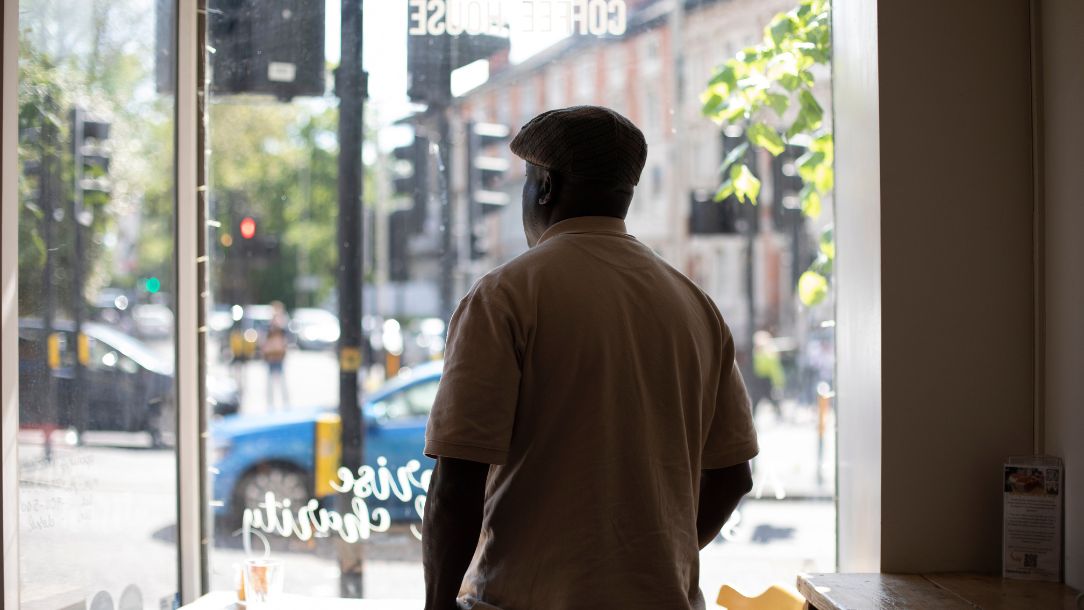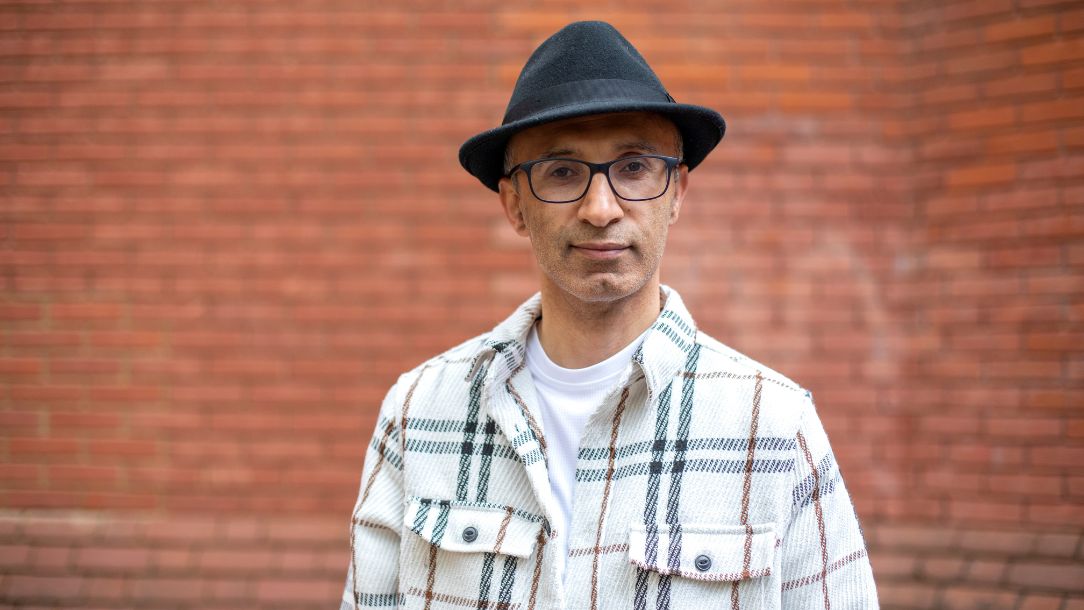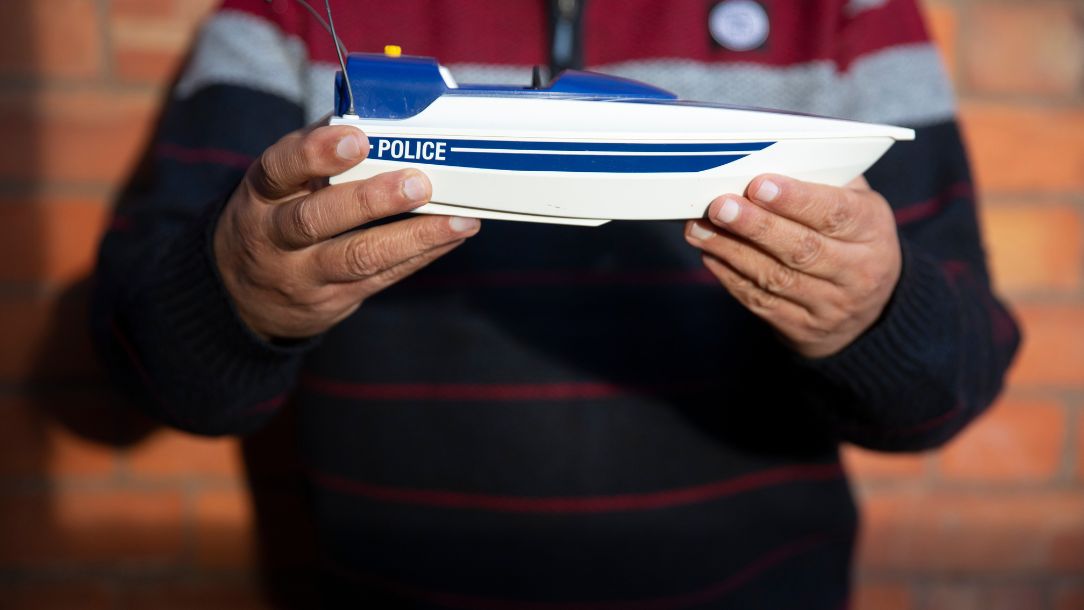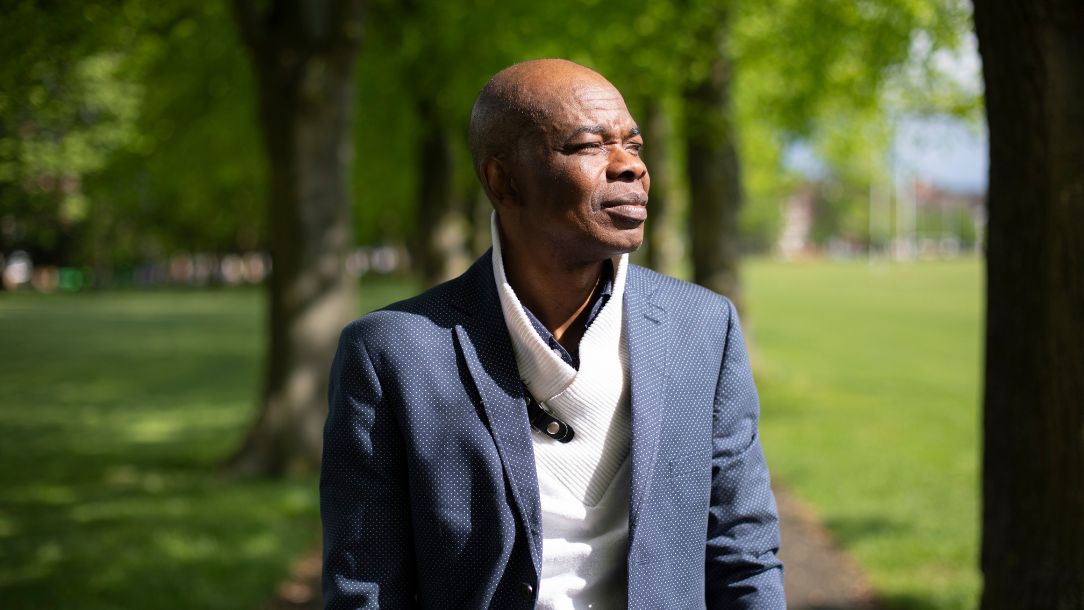"When I fled persecution unprepared, I left my family in limbo"
Last updated 17 July 2023
Five ambassadors from the VOICES Network share their stories of hardship, resilience, and hope.
Each year, the British Red Cross helps reunite hundreds of refugee family members. Nine out of ten are women and children joining husbands and fathers in Britain.
Yet, the stories of these refugee husbands and fathers – who often spend years separated from their family members – rarely enter the spotlight.
From breadwinner to living on vouchers
George*, 57, is one of the thousands of refugee fathers in the UK. In 2005, he had no choice but to flee his home country, Cameroon, leaving his wife and two young children behind.

Two decades later, the past still weighs heavy on George. Photo: Kate Stanworth/British Red Cross
He recalls the feelings of guilt following his difficult decision to seek safety: “When I fled persecution unprepared, I left my family in limbo,” says George.
“I was not only looking at how to get myself settled. The most challenging part was what my family was going through in my absence,.” he explains.
The past still weighs on George: “I was the breadwinner. [During the asylum process] you are not supposed to work; I had to live on vouchers. It was very stressful – not only to me but to my family.”
Fleeing persecution only to end up on the street
George’s story is similar to many others. Jamal, 44, is a father of three who escaped Iran four years ago. A part of the country’s Arabic speaking Ahwazi minority, Jamal was also scared for his life.

Through poetry, Jamal has been able to process his trauma. Photo: Kate Stanworth/ British Red Cross
Jamal has been able to come to terms with the past through poetry: “I turn my pain, my suffering, into poetry. When I have a problem, I try to write – but some people cannot write.”
He arrived in the UK without knowing what he would face: “I knew two things: the number for the bus and [the name] Croydon. When I went to Croydon, I thought maybe it’s a hotel, the Croydon hotel. But Croydon is an area – a big area. And I stayed on the street for two days.”
While Jamal’s traumatic experience of sleeping rough only lasted for a couple of days, it is common for newly recognised refugees to face homelessness, – often unable to access accommodation support services.
Inevitably, this can have a long-lasting impact on a refugee's mental and physical health on top of the pre-existing trauma they carry after being forced to leave their home countries to escape persecution.
Years of hardship over solicitor’s empty promises
Many refugees in Britain come from countries where men are traditionally seen as the breadwinners of the family – which can make financial hardship even harder to bear.
Akhtar*, 60, was taken advantage of by a solicitor who conned thousands of pounds from his family with empty promises over their asylum application when they came to the UK from Pakistan:
“He [the solicitor] took our money. Every time I called him, he used to say, ‘Don’t worry, we are doing good’. And after some time, he disappeared.”

Akhtar's son's favourite toy reminds him of the time his family had nothing. Photo: Kate Stanworth/ British Red Cross
It remains hard for him to talk about the memories from his family’s first years in Britain after leaving their life in Pakistan behind.
Akhtar’s story is not uncommon: with cuts to legal aid, there are several rogue immigration solicitors exploiting vulnerable refugee families. For Akhtar’s family, this resulted in unimaginable financial and mental strain for several years.
Discovering a passion through VOICES Network
While the financial hardship of not being able to provide for your family is painfully real for refugee fathers, they are also often faced with questions over their decision to seek safety in the UK.
“People ask you ‘Where are you from; what are you doing here?’. Some questions make you feel like you are not welcomed,” Riccardo, a father of two, says.

Joining the VOICES Network allowed Ricardo to discover his passion for poetry. PHOTO: Kate Stanworth/British Red Cross
Five years ago, Ricardo was forced to flee the Democratic Republic of the Congo as a refugee. When Ricardo joined the VOICES Network, supported by the British Red Cross, one of his managers suggested that he joined a poetry group.
Incidentally, this led to Ricardo, 54, discovering his passion for writing poetry. Recently, he published a book: “I wrote in the book to express myself; to explain to people where I come from,” explains Ricardo.
From nameless statistics to valued assets
Unfortunately, the long-term impacts of the burdensome asylum process on mental health and family relations rarely enter the media discourse.
Mohammad*, 39, is a father of three who fled Nigeria 24 years ago.But the scars he bears from over two decades ago are still evident today.
“It’s [not being allowed to work] incapacitating – it affects your sense of worth and ability to freely show love to your children.” he says.
Currently training to become a barrister, Mohammad adds: “Instead of seeing refugees as a burden – or as some statistics for politicians to toss around – we should see them as an asset. People that will add to the cultural and economic well-being of Britain.”
Family reunions and access to support
Having fled persecution, refugee fathers like George, Jamal, Akhtar, Ricardo, and Mohammad escaped a bleak future back in their home countries, where their lives were in danger.
After spending years separated from their family members or without knowing when they wouldreceive their next paycheck, today these fathers have access to the support they need.
And most importantly, they are with their families. Sadly, for countless other refugee fathers in Britain and around the world, this remains a distant dream.
Names with * have been changed
Help us support refugees
Refugees have experienced the worst challenges in life – but together, we can show the very best of humankind. Please donate if you can and help us continue our support, in the UK and around the world.
DONATE